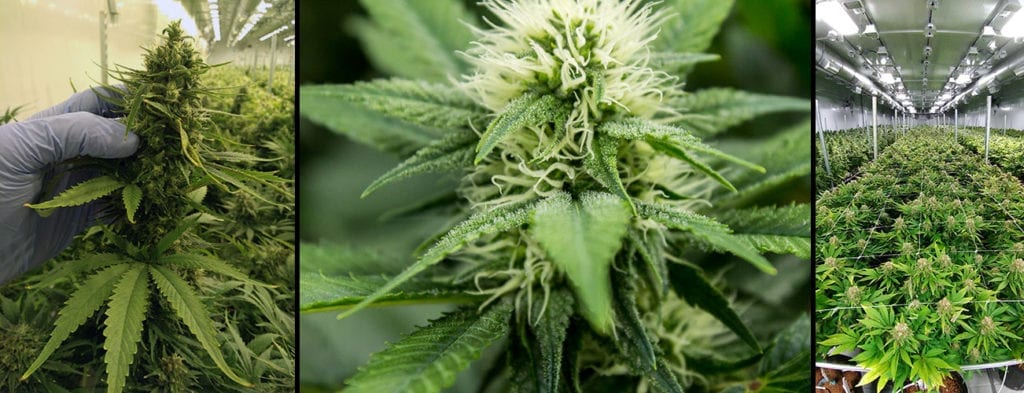Doug Esposito is the Cannabis Practice Leader for Owen-Dunn Insurance Services, a Sacramento-based shared partners brokerage.
In the following interview, Doug joins our podcast host TG Branfalt to talk about insurance options for the cannabis industry as it continues to take root and grow into the mainstream. We hear from Doug what typical cannabis industry insurance options might look like, what hurdles cannabis companies can expect to face in the pursuit of smart insurance coverage, what insurance carriers and brokers can and can’t do to help alleviate some of those issues, and more!
Tune into the interview through the player below, or keep scrolling down for a full transcript of this week’s Ganjapreneur.com podcast episode.
Listen to the podcast:
Read the transcript:
TG Branfalt: Hey there. I’m your host, TG Branfalt, and you’re listening to the Ganjapreneur.com podcast, where we try to bring you actionable information and normalize cannabis through the stories of Ganjapreneurs, activists, and industry stakeholders.
Today I’m joined by Doug Esposito. He’s the cannabis practice leader at Sacramento, California based, Owen-Dunn Insurance Services, which is a part of a shared partners, which operates in 30 states. How you doing this afternoon, Doug?
Doug Esposito: I’m well, Tim. Thank you. Thank you very much for having me.
TG Branfalt: I’m really delighted. I mean, you’re the second person who deals with these insurance issues that I’ve had on the show, and I really want to get into the dirty details of this aspect of it that’s overlooked in these conversations. But before we do that, I want to get to know you, man. What’s your background and how’d you end up covering the cannabis space?
Doug Esposito: No, great question. I’ve really been in insurance for about 20 years, and started really on the construction and the energy side, writing contractors, and performance guarantees. Then, literally about three years ago, a key CPA friend of mine said a lot of compliance was coming to California, and, “Would you look at the insurance aspect so we can put together a high performance team and add an attorney to the trifecta, if you will?”
It was really from that impetus that I started researching the space, and it was at that time, it was interesting, where Lloyd’s of London wrote the lion’s share of the policies in cannabis, and they were literally just leaving the marketplace. There was this void, and I just happened to connect at a dinner with someone who had been writing cannabis insurance for over 10 years, which is like forever in insurance terms.
He was changing his model to wholesale and he said, “I can absolutely love a good broker. I’ll teach you everything that I know from the 10 years of insurance” and put a business plan together, pitched my company on it, and they said, “Go do it. We like it.”
TG Branfalt: So you really learned from somebody who … I mean, 10 years in the cannabis industry is a lifetime.
Doug Esposito: Yeah. No, without a doubt. I mean, and that was pretty key, too, because you still have to read a policy and you have to be a technical expert, but the ability to sit down with this gentleman and really go through, really getting into, “Hey, what are they doing? What are their exposures? How is that different from regular ag versus construction versus manufacturing?” So, he really catapulted me from an industry knowledge standpoint, without a doubt.
TG Branfalt: So when did Owen-Dunn take the plunge into offering insurance for the cannabis space?
Doug Esposito: Insurance is pretty entrepreneurial. You start working with the clients and then you find niches, and so really back in 2008 or so, we actually wrote several dispensaries. More than 5, less than 10, in the Sacramento area, but they all got shut down by the feds.
You kind of migrated away from cannabis, so we wrote every other type of insurance really in the marketplace, so it wasn’t until 2015 where I really connected with my CPA, and then we started to really go after, “Hey, what are the markets? Who’s writing it? What do we need to know? Who do we need to get connected to?” Associations, et cetera. So, really, I kind of consider it three years of really diving in at a deep level.
TG Branfalt: After the setback that you had mentioned in Sacramento where they started shutting down the dispensaries, why’d you get back into it? Why did you decide to take on this task of leading the division?
Doug Esposito: You know, it was a little bit personal. I love the underdog, and I had a cousin who had been a grower for 30 years from Colorado, and I always knew what he was doing, and I’ve seen what he did, but never really paid any attention to it. But once I had heard of the oppression and how it was so restricted and even back from the paper industry, how the whole demonizing of cannabis started, it just really appealed to me to fight for the underdog, to see really creative people, cool, grounded, down to Earth people, but also to kick up a little dust, too, and bring some ignorant people into the light just by some education.
When I started to really learn about the industry, man, I was just blown away and excited to be able to be really on the front edge of helping them come into the light, if you will, from a legal standpoint, compliance, insurance, and so insurance is a key piece of every other business. And it will be for the cannabis space, as well. It’s just we’re starting off slow but sure.
TG Branfalt: How challenging was it for you in the beginning and as the industry’s evolved, especially in California?
Doug Esposito: There’s just very few markets that will play in this space. I mean, so if you think about one, it’s illegal federally, but then two, insurance companies aren’t avant-garde. I mean, they’re not serious entrepreneurs that are jumping, leaping before they really look at what the consequences are. They’re serious, data driven, they’re looking at large numbers, and when you look at the federal illegality of it, you look at there’s not a lot of data because everything’s been in the dark.
It’s not like you have loss information for worker’s comp, or there were no claims. I mean, there wasn’t anything to do, and so very challenging, trying to get carriers to come into the space. Then you add banking, it’s like so how are you going to pay for that insurance policy? Well, I mean, Tim, think about it, how do they pay their payroll? In cash. How do they pay their taxes? In cash.
It’s one of those things where we really had to look at all the various aspects of it, and it makes it incredibly challenging, and then you add the technical aspect of how these policies are written, where they have more exclusions and more restrictions than anything else in the marketplace, because of the nature of the psychoactive effect of the THC. It’s kind of like a trifecta. It’s a perfect storm, if you will, to use that analogy.
TG Branfalt: Let’s get into it a bit here. What are some of the common insurance issues in the cannabis industry? What’s covered? What isn’t covered?
Doug Esposito: Yeah, good question. There’s really coverage, and I was literally on a panel for the Department of Insurance back in October. Someone actually said on that panel that there weren’t coverages for a lot of the risks, and it’s not true. Now, we don’t have a lot of carriers, but we can cover virtually everything, except for outdoor crop property coverage.
We’ve got general liability, we’ve product liability, we have property. Even your indoor crop coverage, your harvested plan, your inventory. We’ve got workers comp, we’ve got auto insurance, we’ve got employment practice liability insurance for labor law, that’s huge in California. The auto coverage, there’s auto coverage, there’s directors and officers coverage.
There’s virtually everything, but you have less options. You have less options, you have greater expense. They’re going to charge more for it, and you’re going to have restricted terms, and it’s just a matter of really looking at, “Hey, well what’s out there? What are their true risks? Can they live with this policy, with these exclusions?” It’s tricky, and from an errors and omissions standpoint, as an insurance broker, being licensed, I tell brokers, “If you’re going to play in this space, you really better be full time and be really precise and reviewing everything,” because it’s definitely not like selling tomatoes and writing insurance for a tomato company, or a metal manufacturing company.
TG Branfalt: So a lot of those things that you had mentioned, I’m familiar with, and if I’m familiar with insurance things, they’re pretty typical. When somebody comes to you, a new business owner say, and they’re looking for insurance, what are some of the not so common things that they might not think about in the first conversations with you?
Doug Esposito: They really don’t realize that the property coverage can be covered. Meaning, you have all of this cannabis, and let’s just say it’s a grow, and now it’s harvested. I mean, we can really insure those very large values, while it’s indoors, from theft, from fire, and just really let ’em know that. I think that the second biggest thing they don’t realize is that they really need worker’s comp.
In the industry for so long, everybody would work on a handshake, or they would get paid cash and there was no above the table, it was all under the table. But to truly then bring worker’s comp into play, all of these 1099s that they use really just don’t hold up when you look at labor law. Now, that might be a tax play for them, but when it comes to labor law and worker’s comp, I really express to them that 99 probably out of 100 times, those people are going to be actual employees.
So, legally, statutorily, they need to cover worker’s comp, and it’s a huge exposure if they don’t. Those would be two of the key ones. Also, too, when you think of general liability, it’s a little different because in every other business, your general liability has what we call slip and fall coverage. If someone comes into the grow, let’s say a dispensary owner, and they slip and fall on water, whatever it might be, that’s where a general liability policy would step in and defend that claim and potentially pay.
In the regular industries, product liability is always coupled, so that you really have those two buckets of money. You’ve got the general aggregate, and the product completed operations, or product liability. In cannabis, they are never the same. Meaning, they’re completely excluding product liability. In the requirements, in the regulations, they always talk about general liability, and no one’s really thinking about the fact that, well, that’s carving out product liability.
Because if you get a cannabis quote and there’s only three or four markets that will quote product liability in the cannabis space, to really cover the flower, the vape oil, whatever it may be, they’re going to exclude product liability, so you need to get a completely separate policy, often times with a whole different carrier, that’s going to cover the product completed operations/product liability, in the event that flower, that vape pen, causes bodily injury or property damage to the person enjoying the pen, or the flower.
That’s a really different game changer in the cannabis world, and so we’ve literally had to train our teams. When you review cannabis, it’s a very different filter when they’re looking at a contractor. I mean, it’s just night and day.
TG Branfalt: Are people who, your team, when they go through their training to become an insurance broker, I’m sure cannabis isn’t mentioned, so how much of a learning curve are they facing, and how much time are you having to put in with this team?
Doug Esposito: Substantial. We make a joke, when you get licensed. I mean, you really don’t learn the details to be a really effective risk manager, or insurance broker, just from licensing. I mean, there’s just no way a licensing body can do enough. So, they really give you just enough army to get out into the streets.
It’s really just niche. I mean, so we sit down when we go through the applications, we started with just one key account manager, one key assistant, and we walk ’em through the entire account. The applications are extremely thorough and long. One of the basic ones in the industry is probably an 18 page application.
TG Branfalt: Oh, wow.
Doug Esposito: It’s crazy, but it does cover virtually every niche in the industry, from an indoor grow, outdoor grow, manufacturing, edibles, extraction. All of those things. You don’t have to fill out all of ’em, but very detailed, and then really just walking through and just changing their filter a little bit, where, “Hey, well product completed operations excluded. Yes, that’s okay, we’re going to pick the coverage up over here.” And, “Well, this is excluded.” “Well, right. There is no coverage for that.”
Or, “Hey, there’s a sublimit here and they’re not going to write this type of auto but we can get it here.” It’s really piecing together the best in the marketplace, ’cause no one carrier is doing it all. We’ll get there, but we’re still pretty early.
TG Branfalt: And then before we take a break, I want to ask you why are you not able to insure the property that an outdoor grow’s located on, but you can the indoor grow?
Doug Esposito: Well, ’cause mostly the outdoor crop program is a federally backed program. So, that right there lies the problem. As long as the feds consider cannabis to be a Schedule 1, and illegal, we won’t have outdoor crop coverage, is a good blanket statement. But because insurance is actually governed state by state, once we bring that in and if it’s not something from the feds, the state can actually monitor and regulate the insurance properly from the Department of Insurance for each of the individual states.
So, once we bring it indoors, it has nothing to do with the feds, we just have one or two carriers that say, “Hey, we’ll underwrite this. If there’s a fire, here’s the limits. If the plant’s at this stage, or if it’s flowering, or if it’s been harvested, we can assign different values to it” and those becomes your limits in the event of a full loss or a fire. But that’s where the whole outdoor crop isn’t available, and then you probably heard of the Santa Rosa fires which were huge and devastating in Northern California, and that’s where that conversation just came up time and time again.
It’s like, you harvest that outdoors and you bring it indoors, and you give me sprinklers and a vault, and we get updated electrical, and we can underwrite it.
TG Branfalt: Wow. That’s really interesting. We’ve got to take a break. When we come back, we’re going to talk more about the risks, get into some more of these details. It’s the Ganjapreneur.com podcast with TG Branfalt.
If you are looking for a job in the rapidly growing and highly competitive cannabis industry, Ganjapreneur.com is the place to look. Visit the Ganjapreneur job board today to browse current openings with cannabis openings throughout the United States. From entry-level budtender positions to executive level career opportunities. You can also create a profile and upload your resume to be discovered by cannabis recruits. Visit our job board at jobs.Ganjapreneur.com, to create your profile today.
If you are a business owner, you can post your job openings for as little as $25 on our job board to reach the largest and most engaged audience of cannabis professionals on the web. Companies who are listed in the Ganjapreneur business directory are eligible for free job listings. If you’re already signed up, contact us today via the website or send us an email at grow@ganjaprenuer.com, to activate your unique coupon.
TG Branfalt: Hey welcome back. It’s the Ganjapreneur.com podcast. I’m your host, TG Branfalt, here with Doug Esposito, cannabis practice leader at Owen-Dunn Insurance Services, which is part of a shared partners. Before the break, you were telling me some really interesting stuff, and some real nuances of your specialty. What are some of the typical risks for cannabis companies, and what steps can cannabis businesses take to manage those risks?
Doug Esposito: If you look at cannabis, it really, for the most part, is virtually like any other business. I mean, you have property exposure. Whether it’s your indoor lights and your HVAC system and your hydration feeding system. Or, it’s the general liability of slip and fall, or the product liability. You have employees in there working every day, so there’s a worker’s comp exposure. You’ve got delivery of your product, whether it’s going from the farmer to the manufacturer, and your distribution, or you’re going to the dispensary.
You really have all that basic stuff, and really the insurance out there is solid. The general liability, the property, the worker’s comp. Auto is one of those places, though, where I mean there is one market out there, and it is extremely difficult, and expensive to get auto liability coverage. It gets even worse when you look at that new class of business where Tim, I don’t know if you’re familiar with them, but they call it non-storefront retail, i.e. which is delivery from business to consumer.
You’re sitting at home and you pull up the web app, Weed Maps, and you say, “Hey, this is the dispensary I want, this is the product,” they have your information, boom. The person drives out and delivers you whatever you ordered. The auto for that is really, really difficult. But it’s like fill out the applications and let’s look at price everything out. See what the insurance costs for every aspect of the business, and then just do a cost/benefit analysis.
I mean, if it’s obscenely priced and you feel it’s that way, and it’s not mandated like worker’s comp or some licenses need general liability, you could go bare. But I mean, just realize, insurance really acts as an asset, and because these cannabis companies can’t bank, they’re not really bankable for the most part. Some are, maybe 10%, but they can’t … If there’s a fire and everything burns down and they lose their manufacturing equipment and their lighting, and their inventory and all that, they can’t just go get a loan.
They really are shut down unless they can get other investors, and so I even think they should rely on the insurance, even to a greater degree, because it’s this asset that’s sitting there, and if you think about it, though, it’s an asset you don’t want to use. I mean, think of your personal auto policy. If you get into a lot of fender benders, what’s going to happen to your premium?
TG Branfalt: It’s going up.
Doug Esposito: Yeah, for sure. It’s going up. Same thing, so you want this thing to help you keep from closing your doors. It’s something you can draw down on, but if you don’t need it, don’t use it. I mean, that way, the price stays a little bit more static, and you use it for a rainy day. It’s finding a good broker and really take the time to look through it, and look at the exclusions.
I mean, it’s fraught, because the old days of just doing it on a handshake and letting somebody just come into your warehouse and do some extraction are over. Because we’ve got contractual liability, we’ve got now, you’ve got the licensing and the permitting and the tax. I mean, it is a full fledged, out in the open, cross your Ts, dot your Is, and if you’re not willing to do that, you need to go work for someone else.
TG Branfalt: So how has the legalization of cannabis in California affected the insurance industry? Like, how has it been forced to evolve? Has it ran like a cockroach when you turn the light on? What’s happened?
Doug Esposito: I think when it went, I mean, because it’s been legally … It’s been legal, excuse me, medicinally, for gosh, I don’t know, over 20 years in California. But there were still no structure to that legality. It was still in that gray zone, and really think about trying to run a business when you don’t have concrete rules. It’s difficult.
When do you know to expand? How do you develop predictability? The legalization of really also adding one, more of our structure, and the regulations, but adding adult use, has now been exponential. You look at California, what are we, the sixth or the seventh largest economy in the world? And now you open medicinal and adult use cannabis, and you’re looking at millions and billions of dollars that are coming into this space rapidly.
The carriers are no dummies. I mean, they’re slow to move, but they see the money. I was speaking at a California Cannabis Industry Association last year, their policy conference. And literally I was posed that question, “How do you get more insurance carriers involved?” I said, “It’s really simple. Three words. Buy more insurance.” The crowd starts laughing because they thought I was being self-serving, but I’m like, “No guys. It’s economics.”
It’s like, we get more licensed cannabis companies, you buy more insurance, the premium dollars are there. We can really tell these other carriers, “Hey, it’s worth the time and the energy to learn this space, to go against the feds, and at least to get comfortable in the state on, “Hey, this is exactly what the risk is. Let’s try and get as much data as we can for it.” Collect a premium that you think’s going to be sufficient, and keep evolving.
But the legalization, especially of adult use, has really accelerated things, too. I mean, you’re seeing huge investment opportunities, where money’s just flying in left and right. Which is kind of nerveracking in some ways, but very good in others. The insurance industry is just one of the ones that’s going to have to jump in and move quicker, and really learn all of the subtleties and the nuances.
Because there’s no turning back. I mean, it’s here. I just spent a lot of time with our state fund who is the statutory place of last resort for worker’s comp in California, and we were on the phone for probably an hour and a half with their top people really walking through a complex risk and helping them get comfortable with it, so they can get it. And once they get comfortable with it, they’re like, “Okay, well, this is what our rating is? Let’s see how it works out and we’ll adjust it in time.”
But yeah, it’s been very exciting. Challenging as well, because they’re still working on their emergency regs, and the bar has been moved left, right, higher, lower. It’s an interesting time, for sure.
TG Branfalt: Since legalization has come online, have you seen an increase of carriers that are willing to serve the space?
Doug Esposito: Yes, without a doubt. And we’re talking to carriers all the time. I was at an event where it really was put on by the Surplus Lines Association, which is just one of the bodies or the associations that’s really active in insurance. Especially if it’s a non-standard type of insurance. Very much like construction, very much like cannabis.
And they see it. Everybody sees it. Everybody has a story of someone in their family who’s either used CBD or something, and it’s helped them with either cancer, or some disease. And you just have more of those now coming out and so the carriers are like, “Hey, this isn’t the ’60s. It’s not the devil’s weed. It’s a real product, it has real potential.” Can’t wait to get more data on it.
And the carriers like our Dave Jones, commissioner Dave Jones was able to pull some strings and get one of the first admitted companies in California to start writing policies. It’s just one of those good steps where now the first step is in other admitted carriers that have more structure, they can’t change the policies as quickly so they’re more conservative, are starting to come in. We’ve got a couple of worker’s comp carriers now that are knocking on the door, so little by little, I keep saying it, but it’ll never be harder than it’s been this last year, from a coverage standpoint, for insurance.
TG Branfalt: Interesting. Is there any difference between insuring operators that are only in California versus insuring these companies that might have stake in Arizona? There’s a couple of companies, I know that they operate under different LLCs, add the name of the state or whatever, but is there any sort of difference in just the California companies versus the ones who have stakes in other states?
Doug Esposito: There’s a lot of complexity to that, too, because especially in California. California is doing it where they’re allowing the locality, the county, to really set the standard, and the rules. And then the state layers on top of that. If you can’t get your local permits and conditional use licenses, well then you can’t get your state one. That brings complexity in and of itself, but because of the illegal nature of cannabis from a federal standpoint, you’ve got no interstate commerce.
So you can’t transport flower legally from one state to the other, so each of these entities, if they’re in multiple states, they really have to have completely self-sustaining business operations that are bifurcated and really separate. Now, the cool part is that the insurance carriers really are multi-state carriers, so they can write you in the multiple states. So, from an insurance standpoint, it’s not a huge issue. It’s just a matter of really keeping up with what the local rules and regs are, so that our insurance is at least diverse enough to cover what those requirements are.
But yeah, the interstate commerce piece is going to be really interesting if the feds ever loosen up the Schedule 1 on cannabis.
TG Branfalt: Do you get a package discount for the multi-state?
Doug Esposito: Possibly. A good rule of thumb is the more premium dollars we have, the more flexibility we can negotiate. If you’re in multiple states, I’m pretty sure we can probably squeeze a nickel or two, but we’re also looking at some pretty cost effective things, too, where we have one client that does track and trace software. And we’re really trying to negotiate with some carriers to say, “Hey, if you use their track and trace, I now have a safer risk. The auto exposure is safer, the theft is safer. Hey, could we get 5 or 10 points of credit on that one?”
Stay tuned on that one, we’re right in the middle of jamming through, and if I could throw a plug out, I’ll throw a plug for them later.
TG Branfalt: Dig it, man. We’re going to take a break. When we come back, I want to talk to you about some of the conceptions that people might have who operate in the industry about the cannabis space. We’ve got to take a break. This is Ganjapreneur.com podcast with TG Branfalt.
At Ganjapreneur, we have heard from dozens of cannabis business owners who have encountered the issue of cannabias, which is when a mainstream business, whether a landlord, bank, or some other provider of vital business services refuses to do businesses with them, simply because of their association with cannabis. We have even heard stories of businesses being unable to provide health and life insurance for their employees because the insurance providers were too afraid to work with them.
We believe that this fear is totally unreasonable, and that cannabis business owners deserve access to the same services and resources that other businesses are afforded, that they should be able to hire consultation to help them follow the letter of the law in their business endeavors, and that they should be able to provide employee benefits without needing to compromise on the quality of coverage they can offer. This is why we created the Ganjapreneur.com business service directory, a resource for cannabis professionals to find and connect with service providers who are cannabis friendly, and who are actively seeking cannabis industry clients.
If you are considering hiring a business consultant, lawyer, accountant, web designer, or any other ancillary service for your business, go to Ganjapreneur.com/businesses to browse hundreds of agencies, firms, and organizations who support cannabis legalization, and who want to help you grow your business. With so many options to choose from in each service category, you will be able to browse company profiles and do research on multiple companies in advance, so you can find the provider who is the best fit for your particular need. Our business service directory is intended to be a useful and well-maintained resource, which is why we individually vet each listing that is submitted.
If you are a business service provider who wants to work with cannabis clients, you may be a good fit for our service directory. Go to Ganjapreneur.com/businesses to create your profile and start connecting with cannabis entrepreneurs today.
TG Branfalt: Hey there, welcome back to the Ganjapreneur.com podcast. I’m your host, TG Branfalt, here with Doug Esposito, super smart guy. Cannabis practice leader at Sacramento, California based Owen-Dunn Insurances Services, which is a part of a shared partners. This has really been really engaging conversation about insurance, so I appreciate that, my man.
Doug Esposito: Totally.
TG Branfalt: What are some of the misconceptions that the insurance industry operators have about the cannabis industry in general? There’s some people who are operating in this industry from an insurance side, who might not still even understand what’s going on. Tell me about these misconceptions that you’re seeing.
Doug Esposito: You know, I think this is just the broader picture, too. It’s like what’s society’s misconceptions? I think it’s that old stereotype of the stoners. It’s like this is a product now that just doesn’t need to be smoked and like a Cheech & Chong style thing where you’re coming out of the hotbox and everybody’s just loaded.
I mean, yes, there’s that, but then there’s also the whole medicinal side, and it just covers the whole gambit. I think that as they see that these are real business owners, working really hard, putting all their sweat equity into the business, taking it serious and wanting to do everything straight up and legal, and to be proud of it.
Like, to be able to go to a Chamber of Commerce event, and what do they call that, TG? When you actually sponsor a table, you know? And really be a part of the community. I think as they see more and more of this, it’s a real industry, it’s got real growth potential. It could be bigger than the corn industry. I mean, it’s really exciting to see these industry insurance broker …
Excuse me, not insurance brokers, but the insurance carriers come in and start to really take notice. That’s the biggest thing, I think.
TG Branfalt: So what about the brokers operating? ‘Cause it’s still a nascent industry. What are you seeing them get wrong as they’re writing in policies for this industry?
Doug Esposito: I think the biggest thing is people are trying to, they think it’s going to be quick and easy and fast money. I don’t think they realize the technical nature, and the difficulty of writing in the cannabis space from an insurance standpoint. That’s why I just really implore, there’s some very good brokers out there. I’ve got some colleagues that I respect very much so, that are like on the insurance committee with me for the California Cannabis Industry Association, and they’re doing it the right way.
I mean, you look at any profession, if they take the time to really learn the clients’ business, exactly what they’re doing, how they’re doing it, and then really read the policies, not just to quote and slap some paper up there and get paid, but really read where the coverages and the exclusions are, it’s not rocket science. It just takes a lot of time, effort, commitment, and that’s what I’m seeing.
When I talk to other brokers, I mean, there’s plenty of room for a lot of success in this space, for sure. But do not be a part timer. I mean, really, if you’re going to commit to it, commit to it, and you better become an expert in cannabis, or I think you’re going to have some issues and some exposures, and your clients might come right back at you from an E&O standpoint, ’cause you didn’t do your job well.
TG Branfalt: And you had mentioned that you’re on the NCIA insurance committee. What’s the hot topic in that committee? What are you guys focused on right now?
Doug Esposito: I would say education is a huge piece. Tim, we really are looking at to try and educate the marketplace, the industry as a whole, that, “Hey, there are coverages out there. The coverages are legit, just go find ’em. Don’t settle for something else.” The education is a big part, and then trying to get more carriers to the place.
I mean, having one auto market is just very difficult. I mean, think about it. Do you want only one choice of beer if you go to the grocery store?
TG Branfalt: I don’t want one choice of insurance company.
Doug Esposito: Yeah, for sure. I mean, I definitely don’t. I mean, and we need that, too, though, because if I have multiple choices, well then I can work on pricing, I can work on terms, and coverages and all those things. We’re really working on expand the absolute number of carriers in the space per line of coverage, and then the education. Again, I mean, I can’t say that enough.
And then a third thing, too, if I may, is really how to bring best practices from a risk management standpoint, like from agriculture with recall policies and procedures, and quality control and quality assurance policies and procedures, and all of those things that the rest of the industry’s been doing for years, how to really bring those to cannabis and do it fast and effectively.
Because I mean right now, you’re seeing a lot more business acumen come into the space. I mean, the old adage of, “Hey, I’m just a farmer, I want to grow great weed,” they’re not really cutting the mustard as much, because compliance and getting licenses is so challenging. They’ve really got to have a business side, and so you’re going to see more and more business people.
I hope the business people come in and they team up with great artisan growers or extraction experts, et cetera. Because I think that’s a great marriage, but yeah, we’ve got our work cut out for it, but man, it’s pretty fun.
TG Branfalt: Man, you’ve mentioned auto like three or four times. Are the auto insurers just assuming that the people driving these trucks are stoned? Like, why is it so tough to get auto insurance in this space?
Doug Esposito: That’s a great question. They might, but we definitely let them know that obviously as a worker’s comp expert, you have to be able to do your job safely. And obviously if you’re high, it’s going to impact your reactions, et cetera. But I think there’s a couple of things. If you look at the country as a whole, the auto market, from an auto liability standpoint, I mean, the rates have been going up for several years, and that auto market has lost money from an underwriting standpoint for the last six or seven years in a row.
It’s not just that it’s cannabis. It’s the whole auto market is hardening. You’ve got greater distracted driving, you’ve got cars that are now designed to crumple, and they’re going to save someone’s life, but you’ve got a total where the whole car is done. That increases the cost, and then every time you have an auto claim, hey that turns right back into a worker’s comp claim.
So, when you look at those two or three things and then you look at, “Well holy cow, we can’t even test for the appropriate amount of cannabis in someone’s blood” and what that will actually do to their reactions like alcohol, so you add that to the mix, and the auto carriers are just like, “Yeah, I’m out. We’re going to just sit and wait,” and they’re just going to sit and wait until more controls are in place, until they probably step in.
It’s a really difficult place to get coverage, and if you ask me, I think that’s one of the greatest exposures, because you’ve got a small delivery company and your driver is distracted for whatever reason, and he plows into a car full of four people, pick the ages of the people, the parents, their earning potential. I mean, you can just have massive losses coming from the auto exposure, much more quickly than from someone getting sick off a flower or something like that. You look at those variables, man, and the auto, it’s just a really challenging spot.
TG Branfalt: Man, I mean, this has been a super, one of the most like in-depth conversations that I’ve had on this topic. Absolutely, you’re a fountain of knowledge. It’s really, really cool to have you on. What’s your advice for both entrepreneurs, people looking to enter the cannabis space who now have this insurance question, and secondly, what’s your advice for people like yourself, people who operate in the insurance industry, that are entrepreneurs?
Doug Esposito: Okay. How much time we have left? No, I’m just kidding. For the entrepreneurs, I’ve been asked this a couple of times as well, though. It’s kind of like, “Hey, treat this like any other business.” There’s this euphoric utopia of the green rush, where people just want to throw money and they think it’s going to be a cannabis business that takes off and makes multiples, but do what you do when you invest in a regular company.
Who’s the leadership? What is the skillset of the leadership? What is that executive team? What do they look like? What’s the business plan look like? At the end of the day, I mean, I don’t care what business you’re in, it comes down to the people that you can hire. So, find the most talented people you can, put them in the right positions, give them the resources and the support they need, and let ’em go to work.
I think that’s universal for any industry, but even more so, especially with cannabis, ’cause for some reason, people are just so excited and they’re throwing money against the wall like poop and waiting for it to stick. That’s not a great business model, at least, or investment model in my opinion.
Second question, for insurance people who are getting in the space, yeah, hey listen, if you like the space and you’re passionate about the space, and you like the people, go to the events, become an expert. I go to all the cannabis business expos. I’m very active in the associations, and I’m in three different associations. I’m in it, submerged, all the time. You learn a little bit every day.
Read the policies. So many brokers out there truly don’t know what’s in any of their policies, let alone really reading the details, ’cause it takes time. It takes energy. But be a professional, be a consummate professional, or it’ll turn around and probably bite you on the backside.
TG Branfalt: Where can people find out more about you? Where can they get in touch with Owen-Dunn? Plug it up, man.
Doug Esposito: Yeah, no sure. I’m based out of Sacramento, but we do work definitely all over California, but I also have clients across the country. But best way to reach me would be just by email. Douge@owendunn.com. Am I allowed to do that?
TG Branfalt: Absolutely.
Doug Esposito: Yeah, so D-o-u-g, last initial, e, @, o-w-e-n-d-u-n-n.com. We’ll take care of you the best we can. We’ll point you in the right direction. I think also part of being an expert is being surrounded by top CPAs, top attorneys, top consultants on all the compliance and the safety. We’ve got a great network of people that we can utilize to make sure we’re providing value at the highest level.
TG Branfalt: I mean, you’ve provided a lot of very high-level advice on this show, man. I really, really appreciate it and you’re a hell of a talker. You might have a second career as a podcast host.
Doug Esposito: Hey Tim, I super appreciate the opportunity, man. I really appreciate it. I look forward to connecting with you person.
TG Branfalt: Yeah, for sure. We’ll be in touch. You can find more episodes of the Ganjapreneur.com podcast in the podcast section of Ganjapreneur.com, and in the Apple iTunes Store. On the Ganjapreneur.com website, you will find the latest cannabis news and cannabis jobs, updated daily, along with transcripts of this podcast. You can also download the Ganjapreneur.com app in iTunes, and Google Play. This episode was engineered by Trim Media House. I’ve been your host, TG Branfalt.







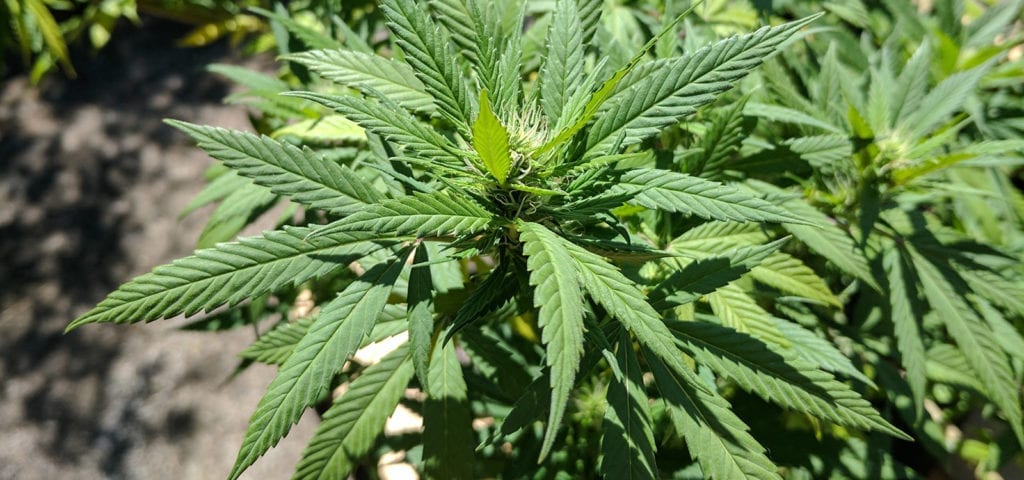



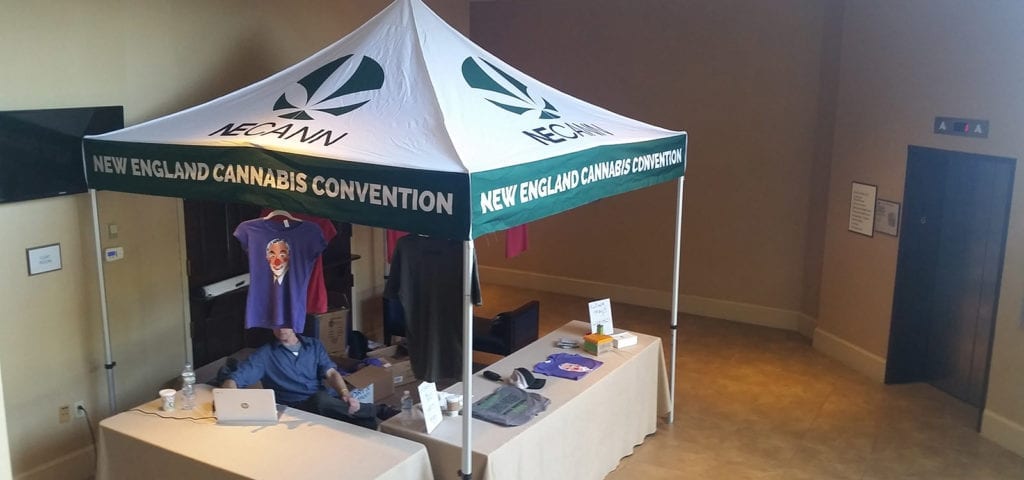


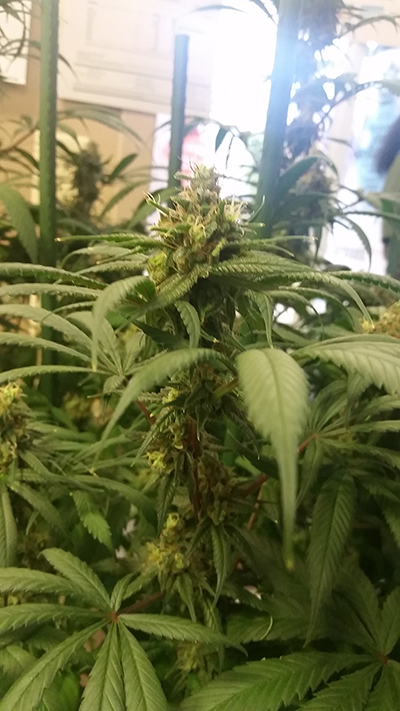




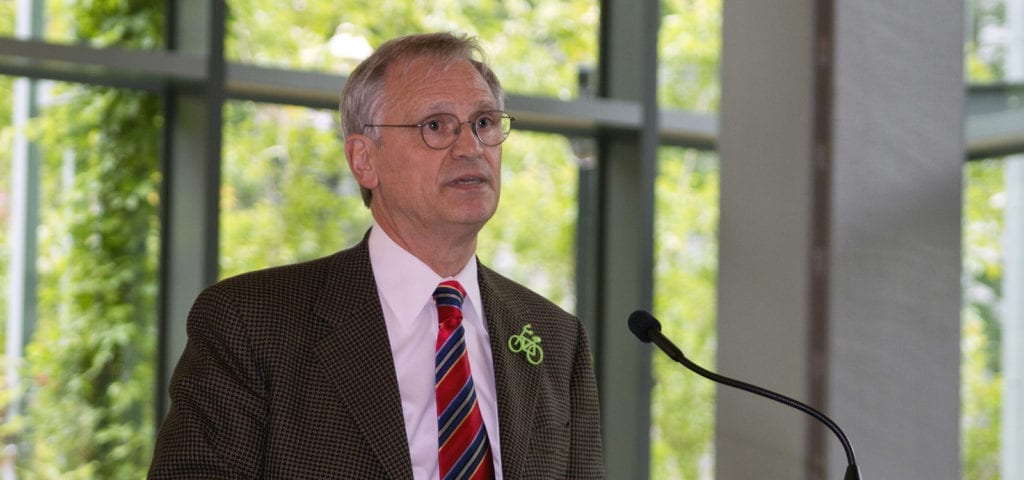



 B.C. and N.B.-based
B.C. and N.B.-based 